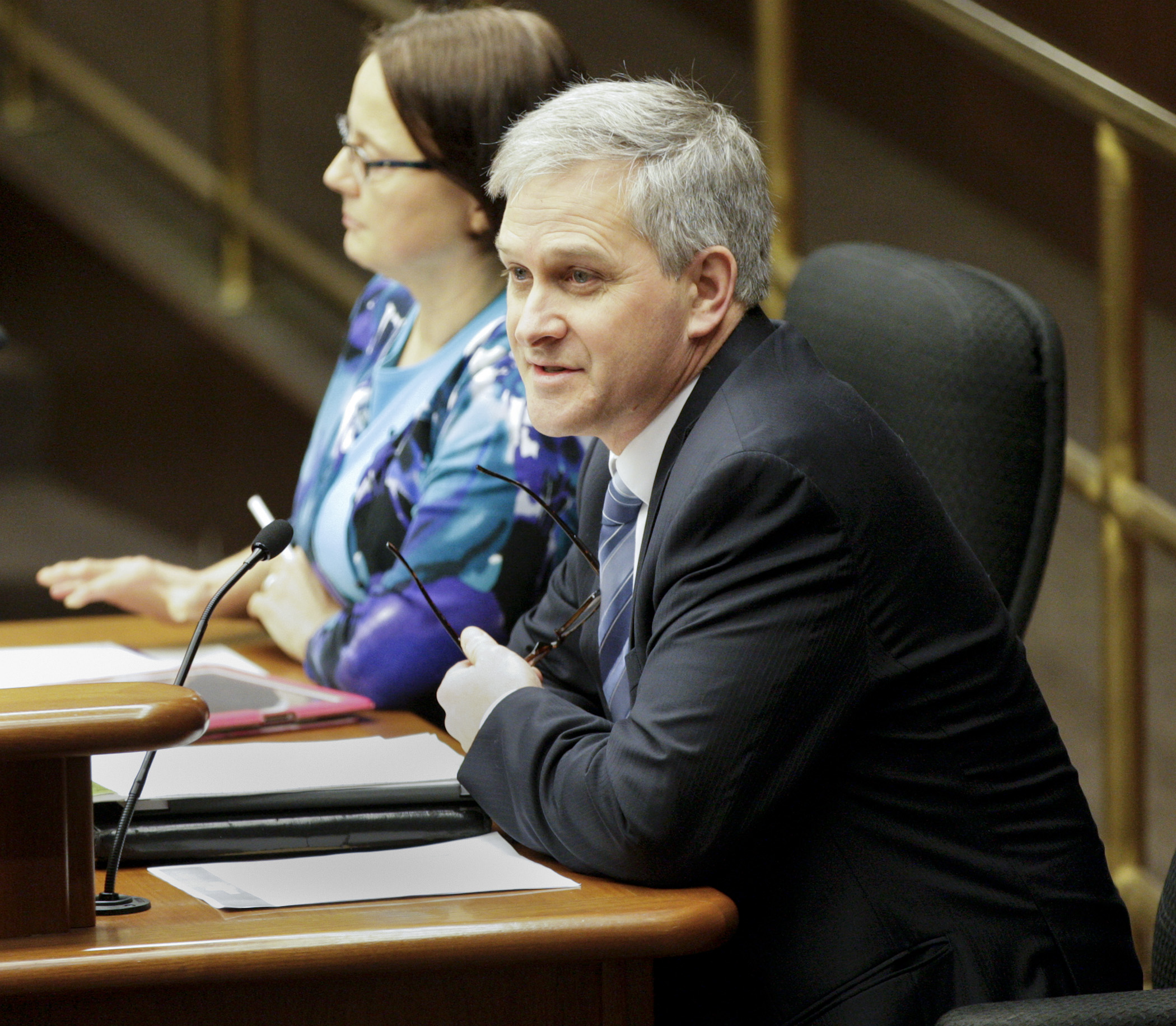Advocates make pitch for increased early ed funding

A coalition of early education advocates are convinced they have found the most effective way to close the achievement gap.
It starts early, they say. And it takes support from a variety of community resources and state funding to ensure that all children are kindergarten ready.
MinneMinds — a consortium of about 100 Minnesota non-profits, philanthropic foundations, community and business leaders committed to increasing access to pre-kindergarten opportunities for low-income children — is asking legislators to dedicate $250 million over the next two years to provide early learning scholarships to eligible families. The organization’s representatives testified Thursday before the House Education Finance and Education Innovation Policy committees.
“We have made great strides the last two years, but nine out of 10 children who need a scholarship are still on the waitlist,” said Frank Forsberg, a MinneMinds executive committee member. The requested expansion would cover all of the estimated 20,000 low-income, at-risk children to attend “high quality” pre-kindergarten programs, he added.
The organization advocated for more modest appropriations in 2013 and 2014, which resulted in funding to cover about 10 percent of eligible 3 and 4 year olds, Forsberg said.
Those scholarships were initially capped at $5,000 per child, but last spring legislators approved lifting that cap. Gov. Mark Dayton has said he will make early education opportunities a priority in his budget proposal, the specifics of which are expected to be unveiled next week.
‘Parent Aware’ status required
The early learning scholarships allow families at or below 185 percent of the federal poverty level to place their 3 and 4 year olds in a variety of child care programs that are certified as high-quality “Parent Aware” providers. The rating system was developed by a joint effort among the Department of Human Services, Department of Education and local child care advocacy organizations. It gives official designation to participating providers who engage their children in “kindergarten readiness” learning curriculums. Providers can only receive scholarships if they are “Parent Aware”-certified.
Some legislators questioned why the program limits participation to providers who have “Parent Aware” status, of which about 1,600 providers have achieved to date.
Rep. Rena Moran (DFL-St. Paul) asked whether it was fair to require the designation if it proved to be a barrier for eligible families to access to otherwise quality day care that didn’t necessarily fit the “Parent Aware” model, especially in rural areas where child care options are sparse.
Forsberg said the program has been able strike a compromise in areas that don’t have enough “high-quality” certified child care, to allow participation from providers who agree to enter into a “Parent Aware” preparation program.
Rep. Anna Wills (R-Apple Valley) said child care centers are already required to be licensed by the state, and wondered whether the “Parent Aware” designation is too stringent for some providers that scholarship recipients would otherwise choose for their children.
MinneMinds is also asking for provisions that would allow parents greater flexibility in how they use the scholarship, which is available for eligible families to use at center- and home-based providers, as well as independent pre-schools and Head Start programs.
“We would like those scholarships to be directed by the parents, who we think are most informed to make education decisions for their children,” Forsberg said, while emphasizing that portability of the scholarship is key for families who change residences and must find a new child care provider.
“We have to respect what parents want and their children need. We are trying to improve the quality of care whether they are ‘Parent Aware’ or not, as it’s our responsibility to help those providers be the best quality they can be.”
Related Articles
Search Session Daily
Advanced Search OptionsPriority Dailies
Ways and Means Committee OKs proposed $512 million supplemental budget on party-line vote
By Mike Cook Meeting more needs or fiscal irresponsibility is one way to sum up the differences among the two parties on a supplemental spending package a year after a $72 billion state budg...
Meeting more needs or fiscal irresponsibility is one way to sum up the differences among the two parties on a supplemental spending package a year after a $72 billion state budg...
Minnesota’s projected budget surplus balloons to $3.7 billion, but fiscal pressure still looms
By Rob Hubbard Just as Minnesota has experienced a warmer winter than usual, so has the state’s budget outlook warmed over the past few months.
On Thursday, Minnesota Management and Budget...
Just as Minnesota has experienced a warmer winter than usual, so has the state’s budget outlook warmed over the past few months.
On Thursday, Minnesota Management and Budget...